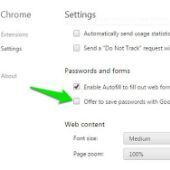Ensuring the Best Practices for Safe Online Gambling – 2FA and 8 More Steps

If you want to know how to be safe while gambling online, you need only consider gambling sites as another part of the internet.
Obviously, you should only patronize safe online casinos. Beyond that, keeping your information safe and private is the same as it should be in all your dealings on the Internet.
But steps you take to protect your family barbecue photos from being swiped are not quite as important as guarding your credit cards, your banking information, and/or your password—all of which you will need to share whenever you sign up with an online casino.
Here is a quick list of the nine steps you should take on how to be safe while gambling online.
1. Get a Third-Party Password Manager
We start off our list of tips to gamble safely online with a third-party password manager. Sure, your browser keeps track of your passwords, but really, how secure is it? Sadly, not secure enough to ensure safe online gambling.
These apps can do everything for you, from generating new passwords to tracking any number of passwords for you as you skip merrily down the cyber-highway.
Even the best of these aren’t all that pricey—an annual subscription to Keeper runs $25 for an individual account. And Dashlane’s advanced plan runs $33 for the year, although it does offer a basic password manager for free.
2. Use a Different Password for Each Account
No one follows this advice, because we humans always know best, don’t we. But it is imperative if you want to truly protect your personal and financial information from hackers and other shady information superhighwaymen.
You want safe online gambling? Then make sure your password to Kohl’s isn’t the same one you use for Cigars International and is also different from the one you use at WinBigly.com.
And I’m not talking about simply adding the year of birth to your first pet’ name, either. I’m talking about long unpronounceable passwords such as the following:
Good thing you subscribed to a password manager, right? Well, you wanted to be safe when gambling online, right? This is what it takes. And if you need some ideas on how to create strong passwords online, we have a solid blog on that.
3. Turn Off the “Save Password” Option in Your Browser

If you’ve already followed the previous two steps toward safe online gambling, then this one should be painless.
By the way, if you installed a third-party password manager already, I’ll bet it had an option to “import passwords from [your browser here]”.
If your browser is willing to give up your passwords to the first program that asks for them, it’ probably not a good idea to trust it with other important information, wouldn’t you say?
4. Why 2FA Is Important
2FA is short for “two-factor authentication.” If it helps, think of 2FA as the Information Superhighway’s traffic cops asking for both your license AND registration.
What this means in plain English is that whenever you sign-in to a site that requires 2FA (usually an option that you control), you will also be required to confirm your identity with a separate device (usually your phone) to confirm that it is really you signing in.
That separate device can be as simple sending your phone a text message asking if that’s really you trying to access that site. Or it could be as sophisticated as one that uses voice recognition to identify you.
While it’s quite possible somebody in Dubuque or even Dansk could get access to your password, it’s much less likely they’d also have your smartphone. Or be able to impersonate your voice well enough to fool the software.
This is one of the most useful tools for safe online gambling, but if I haven’t convinced you, here’s more details on how to use 2FA when gambling online.
5. Use a VPN
Perhaps the best piece of advice for safe online gambling that I can give is this one: Online betting safety is much more secure when conducted over a Virtual Private Network. This time-honored method of internet security sets up a fully encrypted connection between your device and the server at the other end.
And it goes beyond that.
This provides good protection from hackers, and if you want to use your laptop or phone to connect to the internet in public places (such as Starbucks), a VPN is not just a good thing—it’s a requirement.
You shouldn’t be wondering “Are slots safe to play?” Instead, you should be making sure you’re keeping your personal information private each time you hop on the Internet. VPN goes a long way to making that security happen.
Don’t leave home without it.
6. Use an Ad/Tracking Blocker
We all know that sites on the web track our activities and purchasing choices, right? If what I just said comes as a complete surprise to you, all I can say is: How’d your last snipe hunt go?
Cookies—those bits of information you and various sites pass back and forth—can be benign, but even then, they are tracking information you may or may not be aware of.
Remember that funny site you went to that would create your porn star name by combining your first pet’s name with the street you currently live on?
Sure, Puddles Sunrise sounds goofy enough to be funny, but now that site knows two of the answers you would give to legitimate sites before they allow you to change your password there. Yeah. I see you nodding. Exactly.
7. Use HTTPS Whenever Possible
Most browsers have an add-on available that will ensure that virtually every connection you make to the internet is encrypted. How this works is simply by converting the “http” of an internet address to “https.”
Can’t get any clearer than that, right? Connecting to another device on the internet via HTTPS establishes an ad hoc encryption between your device and the server at the other end, effectively masking everything communicated between the two from the rest of the internet.
Unfortunately, some sites do not have the SSL (Secure Sockets Layer) certificate that sets up the two-part security conversation between your device and the server at the other end.
Still, most businesses default to HTTS as a way to protect themselves and their patrons from theft and fraud.
8. Use Antivirus Software Regularly
All the steps for safe online gambling are moot if you aren’t staying vigilant about hacking and virus attacks on your various internet-connected devices.
If you don’t have antivirus software installed already, you probably can’t read this because all those viral pop-up ads are covering your screen.
If you’ve somehow managed to avoid being victimized by virii or hackers or keyloggers, without antivirus protection—well, that hardly seems likely. But in case that is true, then waste no time in acquiring said protection.
And once you acquire one, make sure you set it to scan your system regularly for signs of viral encroachment. Make sure that whichever antivirus program you buy monitors internet traffic in real time as well as regularly scans your system’s memory and storage devices for signs of virus activity.
9. Clear Your Browser Cache Regularly
This one isn’t absolutely necessary when you’re figuring out how to safely gamble online, but it is a good precautionary measure overall—and it has the secondary benefit of making your browsing go faster.
See, your browser’s cache is a subdirectory full of the most recent version of all the webpages you’ve visited. Yeah. All.
Regularly clearing your cache is just good housekeeping. The cache gets cluttered with out-of-date information that conflicts with current information from various webpages, and often (pronounced “always”) results in delays in your web-surfing.
But for our purposes, the best reason for regularly clearing your bowser cache is to eliminate all those tracking cookies you’ve agreed to as you cut your wide swath across the Internet.
This is just some of the advice for safe online gambling. If you want want to avoid identify theft at casinos, this piece will go further into detail on the best ways to do that.
Footnotes:
- “How to Protect Your Digital Privacy” by the New York Times
- “12 Simple Things You Can Do to Be More Secure Online” by PC Mag
- “3 Advantages And Disadvantages Of Password Managers” by Kelser Corporation
- “What is VPN? How It Works, Types of VPN” by Kaspersky Lab
- “How to Clear the Cache and Cookies in Your Web Browser” by University of Iowa Information Technology Services
 80%
80% 75%
75%

